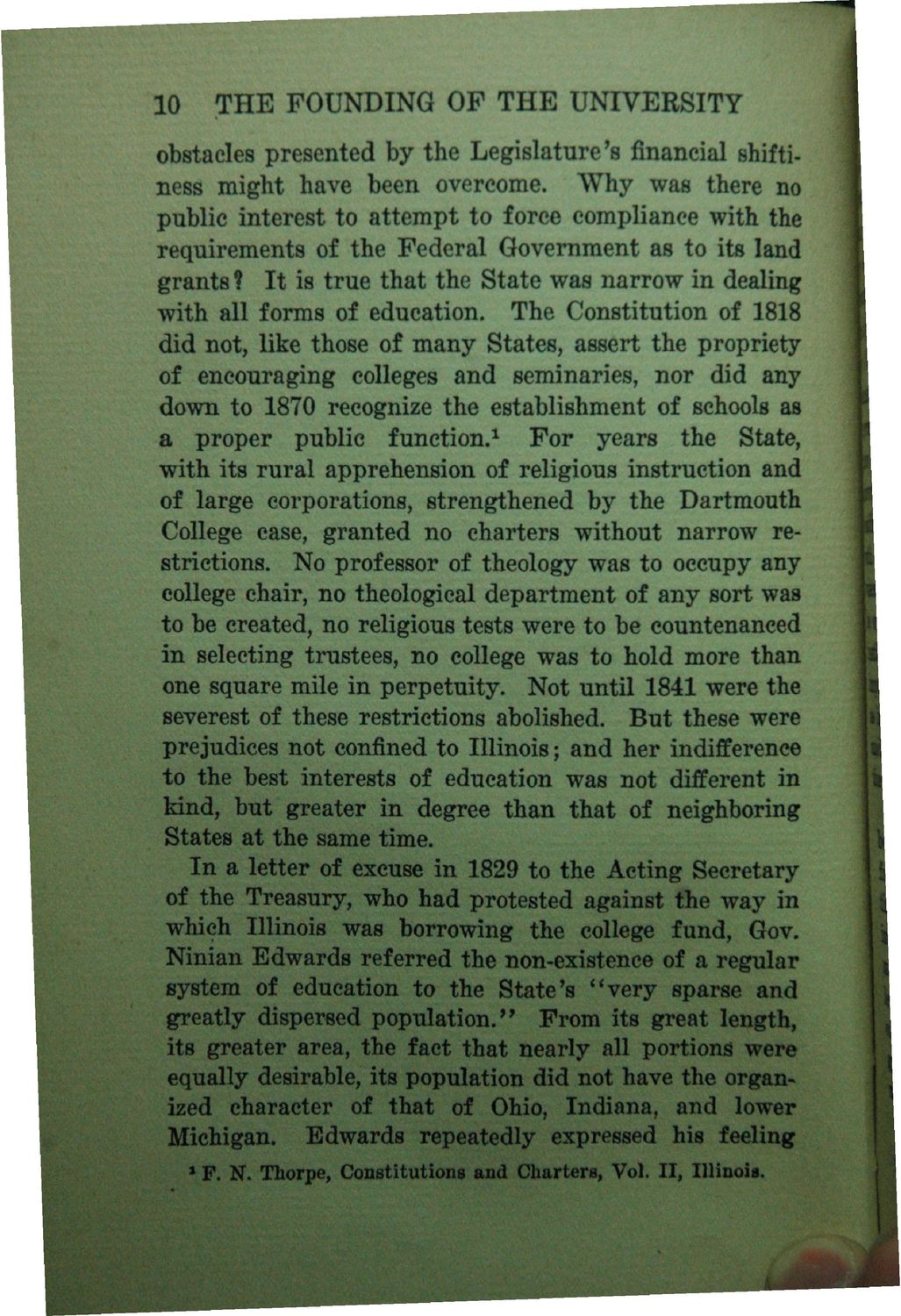| |
| |
Caption: Book - History of the University (Nevins)
This is a reduced-resolution page image for fast online browsing.

EXTRACTED TEXT FROM PAGE:
10 THE FOUNDING OP THE UNIVERSITY obstacles presented by the Legislature's financial shiftiness might have been overcome. Why was there no public interest to attempt to force compliance with the requirements of the Federal Government as to its land grants ? It is true that the State was narrow in dealing with all forms of education. The Constitution of 1818 did not, like those of many States, assert the propriety of encouraging colleges and seminaries, nor did any down to 1870 recognize the establishment of schools as a proper public function.1 For years the State, with its rural apprehension of religious instruction and of large corporations, strengthened by the Dartmouth College case, granted no charters without narrow restrictions. No professor of theology was to occupy any college chair, no theological department of any sort was to be created, no religious tests were to be countenanced in selecting trustees, no college was to hold more than one square mile in perpetuity. Not until 1841 were the severest of these restrictions abolished. But these were prejudices not confined to Illinois j and her indifference to the best interests of education was not different in kind, but greater in degree than that of neighboring States at the same time. In a letter of excuse in 1829 to the Acting Secretary of the Treasury, who had protested against the way in which Illinois was borrowing the college fund, Gov. Ninian Edwards referred the non-existence of a regular system of education to the State's "very sparse and greatly dispersed population." From its great length, its greater area, the fact that nearly all portions were equally desirable, its population did not have the organized character of that of Ohio, Indiana, and lower Michigan. )fi Edwards repeatedly expressed his feeling 1 F. N. Thorpe, Constitutions and Charters, Vol. II, Illinois. 1
| |